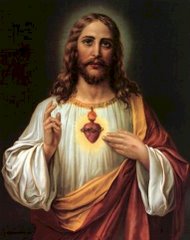
Byzantium was history by 1452. The Turk had conquered Rome of the East, Constantinople. They had confiscated the largest cathedral in the Christian World, Hagias Sofia, and made it the Great Mosque.
By the mid 1500's the Turk had conquered Greece, Albania and much of the Balkans. Germany (the Holy Roman Empire), France and Merry Olde England were no where to be found in defending Europe from the invader. Abandoning the Christian cause, they bitterly fought religious wars within their borders. England and much of the Holy Roman Empire fell into heresy.
The Turk at that time was the master of the Mediterranean. The Turk continued its threat against Europe and Italy. Throughout the Balkans, the Turk destroyed both Orthodox and Catholic Churches and tried to force Islam on the people. Regrettably, they were successful in Albania, Bosnia, and Kosovo.
Although Spain did not have economic and or strategic interests in the region, St. Pope Pius V asked and obtained aid from the King of Spain, Phillip II, to participate in a crusade to prevent further advancement of the Turk in Europe.
Spain, the Vatican and Venice formed a league to fend further Turkish encroachment into Christian Europe.
So despite the lack of political or economic interests, its own wars in the Low Countries, threats from England, and Moslem terrorism in Andalucía, Spain provided the greater part of the navy which destroyed a far superior Naval Fleet of the Turk. This was done on October 7, 1571 at the Battle of Lepanto.
Over 80% of the Turkish Navy was destroyed for the glory of God. The League’s leader, Juan de Austria, and all military personal prior to the engagement, fasted for three days, went to Confession, and received Holy Communion. Even the galley slaves were unshackled and allowed to do this. They also prayed the Rosary, flew the blue banner Our Lady of Guadalupe, and that of the Pope himself. This was a glorious victory for Christ.
At the very hour of victory, as Pope St. Pius was occupied with Vatican business, he looked out of the window and received revelation the battle had been won. Thereupon he told his treasurer “Go with God. This is not the time for business, but to give thanks to Jesus Christ, for our fleet has just conquered.” He then prostrated himself in his chapel in thanksgiving.
Two weeks later word of the victory finally reached Rome. The Pope declared October 7, the feast of the Holy Rosary and added the title Help of Christians to our Lady’s Litany of Loreto. There was much rejoicing in Italy and Spain.
Praise God.
By the mid 1500's the Turk had conquered Greece, Albania and much of the Balkans. Germany (the Holy Roman Empire), France and Merry Olde England were no where to be found in defending Europe from the invader. Abandoning the Christian cause, they bitterly fought religious wars within their borders. England and much of the Holy Roman Empire fell into heresy.
The Turk at that time was the master of the Mediterranean. The Turk continued its threat against Europe and Italy. Throughout the Balkans, the Turk destroyed both Orthodox and Catholic Churches and tried to force Islam on the people. Regrettably, they were successful in Albania, Bosnia, and Kosovo.
Although Spain did not have economic and or strategic interests in the region, St. Pope Pius V asked and obtained aid from the King of Spain, Phillip II, to participate in a crusade to prevent further advancement of the Turk in Europe.
Spain, the Vatican and Venice formed a league to fend further Turkish encroachment into Christian Europe.
So despite the lack of political or economic interests, its own wars in the Low Countries, threats from England, and Moslem terrorism in Andalucía, Spain provided the greater part of the navy which destroyed a far superior Naval Fleet of the Turk. This was done on October 7, 1571 at the Battle of Lepanto.
Over 80% of the Turkish Navy was destroyed for the glory of God. The League’s leader, Juan de Austria, and all military personal prior to the engagement, fasted for three days, went to Confession, and received Holy Communion. Even the galley slaves were unshackled and allowed to do this. They also prayed the Rosary, flew the blue banner Our Lady of Guadalupe, and that of the Pope himself. This was a glorious victory for Christ.
At the very hour of victory, as Pope St. Pius was occupied with Vatican business, he looked out of the window and received revelation the battle had been won. Thereupon he told his treasurer “Go with God. This is not the time for business, but to give thanks to Jesus Christ, for our fleet has just conquered.” He then prostrated himself in his chapel in thanksgiving.
Two weeks later word of the victory finally reached Rome. The Pope declared October 7, the feast of the Holy Rosary and added the title Help of Christians to our Lady’s Litany of Loreto. There was much rejoicing in Italy and Spain.
Praise God.





No comments:
Post a Comment